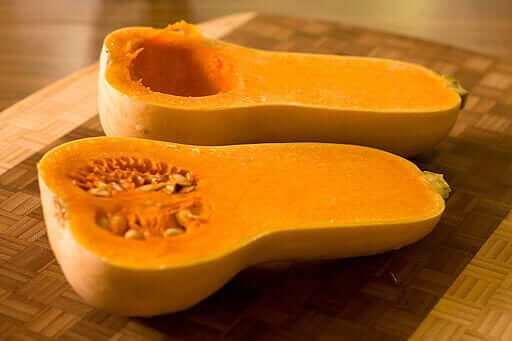Spaghetti squash nutrition
Spaghetti squash nutrition is steadily gaining popularity in health circles because of the large amount of nutrients it provides in a single serving. Unlike other winter squashes, it is less sweet in taste and lower in carbohydrates. With only 42 calories a cup, it is beneficial for dieters and can help diabetics manage blood sugar…
This post may contain affiliate links. Please read our disclosure policy.
Spaghetti squash nutrition is steadily gaining popularity in health circles because of the large amount of nutrients it provides in a single serving. Unlike other winter squashes, it is less sweet in taste and lower in carbohydrates. With only 42 calories a cup, it is beneficial for dieters and can help diabetics manage blood sugar levels. Whether you want to shed extra weight or eating to control a chronic condition, spaghetti squash nutrition can put you on a fast track to better health.
What is Spaghetti Squash?
Spaghetti squash is a type of winter squash. What makes it unique is that its flesh forms strands that resemble pasta. Its yellow flesh only contains 4 grams of sugar to add a little sweetness to its taste. It can be served warm or chilled, and can be used as an ingredient or eaten as a savory side dish. The spaghetti squash is recommended by health professionals because of its nutritional benefits.
Spaghetti Squash Nutrition Breakdown
The spaghetti squash has an impressive nutritional profile. It contains every essential vitamin and mineral in varying amounts. The most prevalent vitamins are vitamin B and C. Vitamin B plays an important role in metabolism and in the production of blood cells. Vitamin C, on the other hand, assists the immune system in defending your body against diseases, and synthesizes proteins.
Spaghetti squash nutrition also offers an array of minerals. It provides potassium, magnesium, calcium, phosphorus and sodium. Potassium is the mineral that has the highest concentration. This mineral is needed daily to make sure that muscles function properly and that your body processes carbohydrates. It also regulates blood pressure and replaces the electrolytes lost during sweating.
Spaghetti Squash Nutrition and Weight Loss
With only 10 grams of carbohydrates, spaghetti squash is one of the best low-carb foods you can add to your plate. While some of these carbohydrates are from natural sugar, the rest comes from its fiber content. Fiber is considered to be a natural appetite suppressant because it helps you feel full for much longer. The squash also contains very few calories, which means you can eat as much as you can without exceeding your limit.
Another benefit of spaghetti squash nutrition for weight watchers is its low fat content. It only has 0.5 grams of fat, which ranks it high on the healthy food list. Much like watermelon, 92% of the spaghetti squash is water, which fills up your stomach without adding calories.
Spaghetti Squash Nutrition and Diabetes
Whether you are already on a diabetic diet or just starting one, spaghetti squash is definitely a food you should add to your menu. Not only does it have very few carbohydrates, it also works with fiber to prevent your blood sugar from spiking. It is the ideal food to add to your meals for a sweet treat that will not disturb your health.
Regardless of your state of your health, spaghetti squash nutrition can do wonders for your body. It is loaded with vitamins and minerals that optimize the function of every system. It also contains very low fat and calorie content, making it perfect for weight loss. By adding this sweet food to your diet, you can enjoy tasty, nutritional meals at more than half the calories.



Leave a Comment